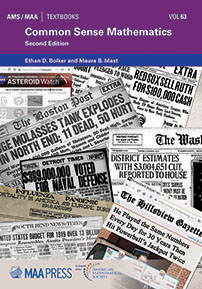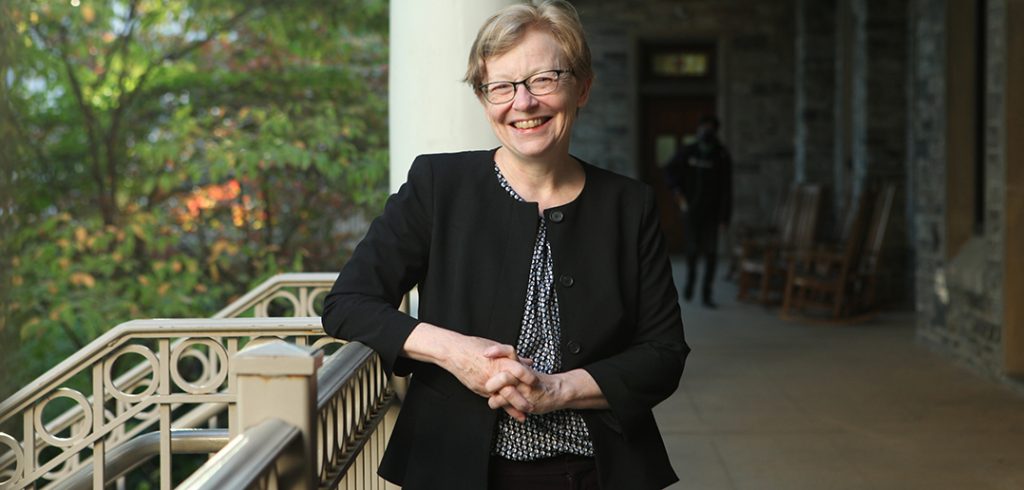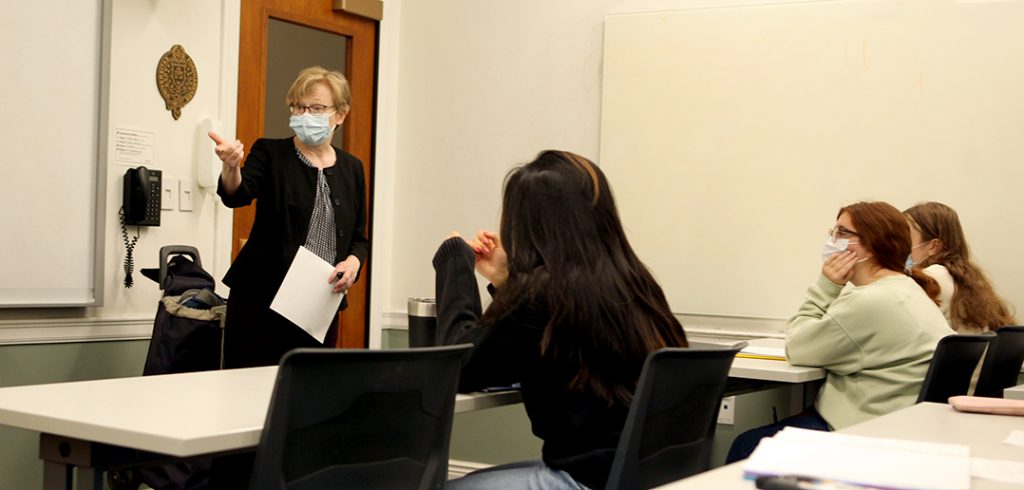 Thankfully for students in the Manresa Program, an integrated learning community in Rose Hill’s Loyola Hall, a class on everyday math takes place right downstairs. The first-year class is taught by Fordham College at Rose Hill Dean Maura Mast, Ph.D., and is based on the book Common Sense Mathematics (American Mathematical Society, 2021), which she co-authored.
Thankfully for students in the Manresa Program, an integrated learning community in Rose Hill’s Loyola Hall, a class on everyday math takes place right downstairs. The first-year class is taught by Fordham College at Rose Hill Dean Maura Mast, Ph.D., and is based on the book Common Sense Mathematics (American Mathematical Society, 2021), which she co-authored.
“Our students come into this class knowing all sorts of amazing things about art, literature, science, math, chemistry, and yet the class is an eye-opener—even for the math students,” said Mast. “Not every family talks about practical finance or the context of interest rates for credit cards and loans.”
She said that most students come to the class with standard math knowledge from high school, but she asks them to approach the math in terms of important decisions they may have already started making, such as school loans. She also asks them to examine the motivations of institutions loaning that money to raise awareness of predatory practices such as undisclosed interest rates.
“These are the ways that I engage them and push them to think more deeply about things. [I tell them,] ‘There’s a formula that’s in there, don’t just let the bank do the math for you. Let’s go back and look up what that compounded interest is,’” said Mast, a recently named fellow at the Association for Women in Mathematics and specialist in the fields of differential geometry and quantitative reasoning. “Our consumer protections in this country are not all that great.”
The class also examines income distribution, such as the fair division of and access to financial resources, like mortgages.

“We look at why the median home price in Manhattan is a million dollars, and what that means in the Bronx,” she said.
The class also addresses how public policies such as redlining kept low-income Black and Latino families from acquiring property. It’s an aspect of the class that reflects the Manresa program’s focus on solidarity with the poor and marginalized.
The Manresa program is open to first-year Rose Hill and Gabelli School students and housed in Loyola Hall. Students take courses from a faculty member from Fordham College at Rose Hill or the Gabelli School who also acts as a core adviser. The program is supervised by First-Year Dean Robert Parmach, Ph.D.
“This is more than a random housing assignment—we are looking for students who are curious, creative, and open to new experiences,” said Mast, who also serves as a core adviser in the program.
One such new experience is creating a “mathematical autobiography,” which Mast uses in her class to ask students to examine their own math history.
“I ask them to tell me, ‘What role has math played in your life? How comfortable are you with numbers?’ Some have had a personal finance class in high school, but many are first-generation college students. I’d say they’re all over the map in terms of their experiences,” she said.
Mast encourages the use of technology in the class, from calculators to Excel spreadsheets that perform complicated formulas.
“Students are stressed in math class, especially when their previous experience hasn’t been good. I offer the technology as a way to say, ‘You don’t have to worry about doing arithmetic. Let’s focus on the answers and what the answers tell us,” said Mast.
One of Mast’s motivations for writing the book and designing the course was to further the goal of creating a mathematically literate public.
“I was determined that they have a positive experience of math and that they learn how important reading numbers is to them as citizens in our democracy,” she said.
“Being able to read a credit card statement and being able to read a New York Times article with numbers in a complicated context—we all need to be able to do that as responsible adults and members of our society. By the end of the course, they should understand that mathematics can tell us about how our society functions.”

